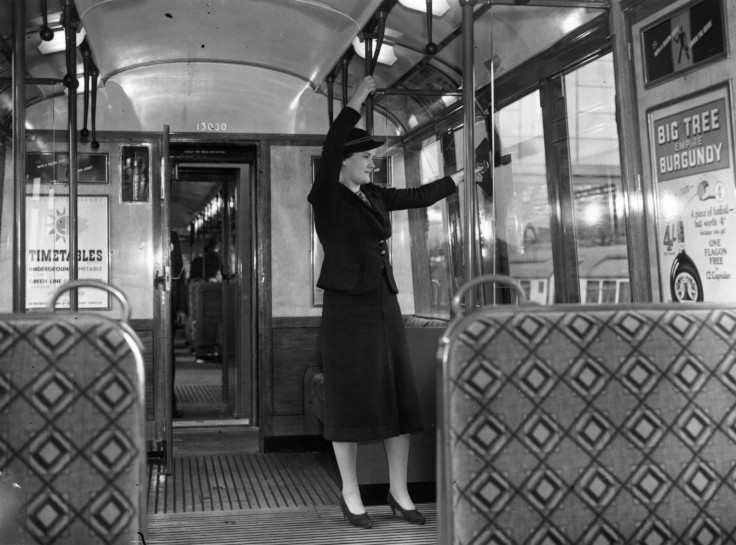Jeremy Corbyn's women-only rail carriages: 19th century segregation won't stop sexual assaults

The first "Ladies-only" carriages on trains in the UK were introduced in the late 19th century and scrapped in 1977, when new equality legislation prevented gender-specific provisions. But in a remarkably misguided attempt to tackle the soaring rates of sexual assault on public transport, Labour leadership front runner Jeremy Corbyn has said he would consider a U-turn on this progress to reintroduce women-only train carriages.
Sexual harassment on public transport is an everyday occurrence for millions of women and girls across the UK. Sexual offences on trains and at stations have risen by 25% to a record high of according to the British Transport Police, with 1,399 offences recorded in the last year. This is likely to be the tip of the iceberg, as the majority of assaults are not reported. According to the Report it to stop it campaign launched back in April, 90% of unwanted sexual behaviour on London transport goes unreported. Overall, the safety of London's transport system lags behind that of New York, Beijing and Tokyo.
This is a dire situation, but the segregation of women is not the answer. The only way to properly tackle sexual assault and harassment is by eliminating the prevailing rape culture which assumes the sexual availability of women, regardless of their consent. We live in a society that fosters an environment tolerant of assault, by failing to tackle a complex set of beliefs that encourage male sexual aggression and accepting violence against women as inevitable.
It is commendable that Corbyn should bring the problem of assault to the forefront of public conversation, but why should women be siphoned off into smaller spaces because certain people cannot control their urges to assault women? Why should we be expected to adapt our lives to accommodate perpetrators? Segregating women is only going to normalise sexual assault and a symbol of marginalisation. It suggests harassment and violence is unavoidable and the best way to deal with the problem is to hide women away.
By forcing women to change the way they travel suggests they are to blame for the verbal abuse, unwanted sexual comments and physical assaults they are forced to endure on a daily basis. It has been put to me that women would not be required to use female-only carriage, but if they opt not to and are attacked in a mixed-gender carriage, would they be blamed? Introducing segregation on public transport runs the risk of fuelling our already pervasive culture of victim-blaming.
Women-only carriages are the equivalent of sticking a plaster over a gaping wound – it won't won't make a difference in reducing rates of assault
Women-only carriages are the equivalent of sticking a plaster over a gaping wound – it won't won't make a difference in reducing rates of assault. To really get to the crux of the problem, a long-term solution would be to properly tackle the inequalities and attitudes which underpin violence against women. By introducing compulsory sex and relationships education in schools, boys would better understand how to be sexually appropriate and the devastating effects of harassment and assault. Young women and girls would understand how to deal with the issue, which could well help levels of reporting offences by breaking the normalisation of harassment.
In addition to better sexual education, we desperately need to increase accountability for perpetrators. The low number of women who report incidents is proof of the widespread feeling of disillusionment with the justice system and its capability to bring sexual offenders to justice. Encouraging women to report sexual assaults is key, as is making reporting easier by breaking the taboo of harassment.
Corbyn might be off the mark on women-only carriages, but he is spot on in calling for a 24-hour hotline for reporting incidents. Through the Report it to stop it campaign, women are encouraged to text where and when they experience an assault to 61016 or to call 101 – after which they will be assigned an officer to deal with their case. But across the UK, we need a widely-publicised, round-the-clock hotline for women to report offences, alongside posters and billboards which threaten legal action against perpetrators.
Better policing of trains and buses is also essential. Since London launched Project Guardian in September 2013 to boost levels of reporting of sexual offences, which saw officers receive special training and increased patrols on the transport network, there has been a 20% increase in the reporting of sexual offences. There has also been an increase of a third (32%) in the number of cases where offenders have been charged or summoned.
The problem of sexual assault goes much further than a stranger's wandering hand on a train. Assault and harassment stems from the same attitudes which prevent women earning the same salary as men for the same job, the attitudes which keep women largely absent from the higher echelons of business and the attitudes which tell girls which toys they can play with. Sexual assault can only be tackled by changing attitudes towards women and girls, not segregation.
© Copyright IBTimes 2024. All rights reserved.






